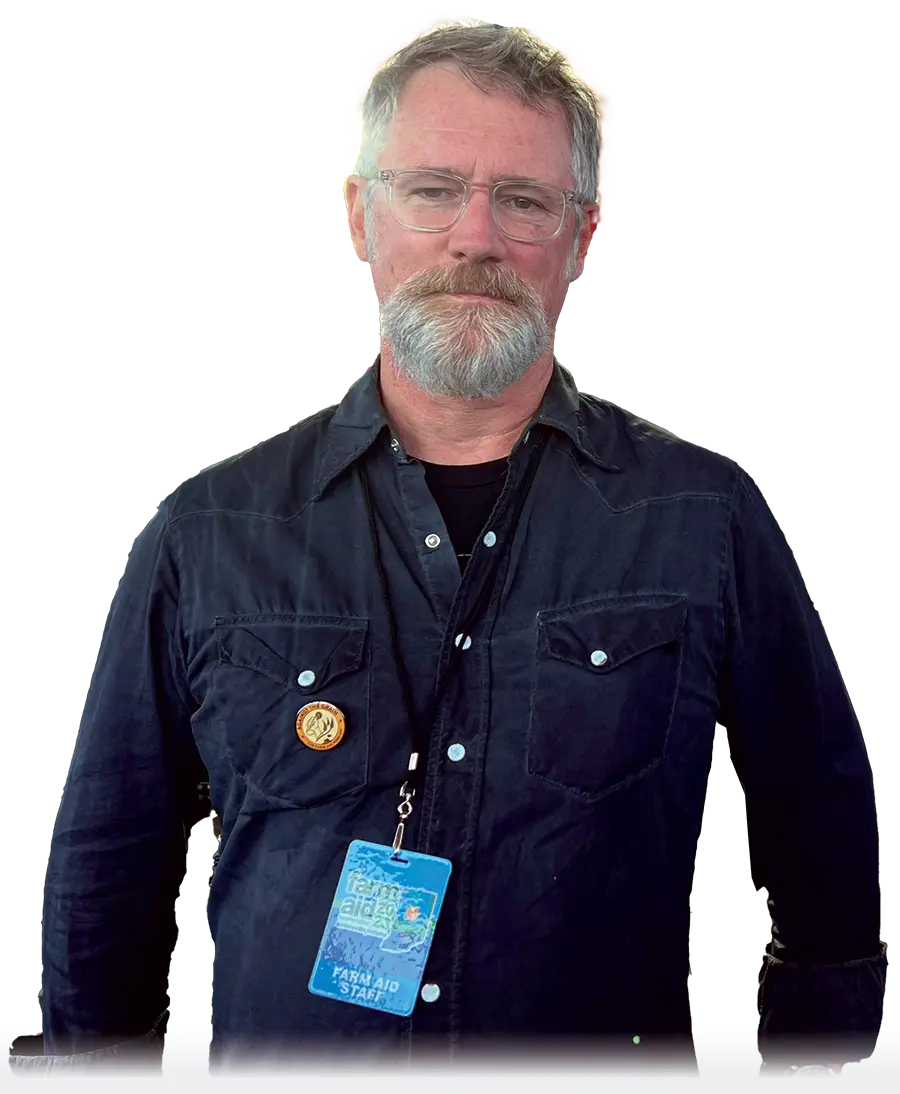Cultural Impact
Fans have been privileged to a stellar lineup of musicians all day, but Nelson is no doubt the main event – the 90-year-old Country Music Hall of Famer is anchoring the Farm Aid festival for the 38th year.
The stage goes dark — and there’s a problem.
The man holding a guitar in the center of the stage doesn’t have two long braids or wear an iconic red bandana. Audience members look at each other in confusion. Where’s Willie?
A low, gravelly voice starts to sing.
The voice? Unmistakable. The lyrics? From the 1960s.
It’s Bob Dylan singing “Maggie’s Farm.”
It was an offhand comment by the folk singer icon Dylan in 1985 that provided the seed of an idea for a concert to benefit America’s farmers. He was performing at Live Aid, a benefit concert for famine relief in Africa. Dylan wondered aloud if some of the money could go toward helping American farmers pay their mortgages.
That same year, Farm Aid was born — an annual music festival featuring big-name acts with proceeds benefiting American family farmers, who at the time were suffering through the Farm Crisis of the 1980s, grappling with the worst economic conditions for agricultural business since the Great Depression.
Farmers, who prided themselves on being self-sufficient, received help in the form of grassroots organizing, rallies, protests and concerts like Farm Aid.
That intersection of music and social movements has long captivated Michael Stewart Foley ’94G ’99Ph.D., who currently serves as Farm Aid’s first cultural impact director.

“I don’t remember when my father first said this to me. … But he definitely said it to me more than once — ‘We’re Irish. We’re Catholic. We’re Democrats. And we’re union.’ Like, that was all we needed to know about our identity,” he says, laughing.
After earning an undergraduate business degree, Foley worked for a Boston mutual fund company. While commuting by train, he read books about the Civil Rights Movement. “The whole time I was trying to figure out what else I could do with my life,” he says.
He enrolled in a history course at Harvard Extension School with Ellen Fitzpatrick — who would later join the UNH history department — and determined that degrees in history would lead him in the right direction. His UNH dissertation was expanded and published as a book — “Confronting the War Machine: Draft Resistance During the Vietnam War.”
After leaving Durham, “my degree literally took me places.” He continued to write and edit books about American culture, politics and music (eight total), and his essays have appeared in The New York Times, The Guardian, and The Washington Post. He would later establish a career in academia, teaching at universities both here and abroad. Along the way he got married and is father to three children.
He joined Farm Aid in 2022 to broaden and deepen the nonprofit’s impact outside of the annual festival cycle.
“I’m an obsessive music fan and I have been since I was an adolescent. … For me, it’s like the visceral power of rock ’n roll. … It’s just something I feel in my bones.”
He’s fascinated with the platform that artists have to share messages and the way the public responds. Farm Aid is “based on an expectation and an understanding that people come for the music but stay for the mission,” he says.
Part of Foley’s work is creating content to engage the public throughout the year — one example from Farm Aid 2023 is an interview he and a colleague did with Dave Matthews, Margo Price and several other musicians backstage for a podcast called “Against the Grain.”
He’s also spearheading projects with Farm Aid’s archives, writing articles for national publications and helping mobilize farmers, farm workers and farmer allies.
Last spring he marched in Washington, D.C., at Farmers for Climate Action: A Rally for Resilience, a gathering led by Farm Aid and the National Sustainable Agriculture Coalition.
“We need to get back to the much older approach to agriculture as modeled by indigenous communities,” says Foley. “Where we take care of the land, the soil and the water, and produce good quality food for the region in a marketplace that pays a fair price to farmers.”